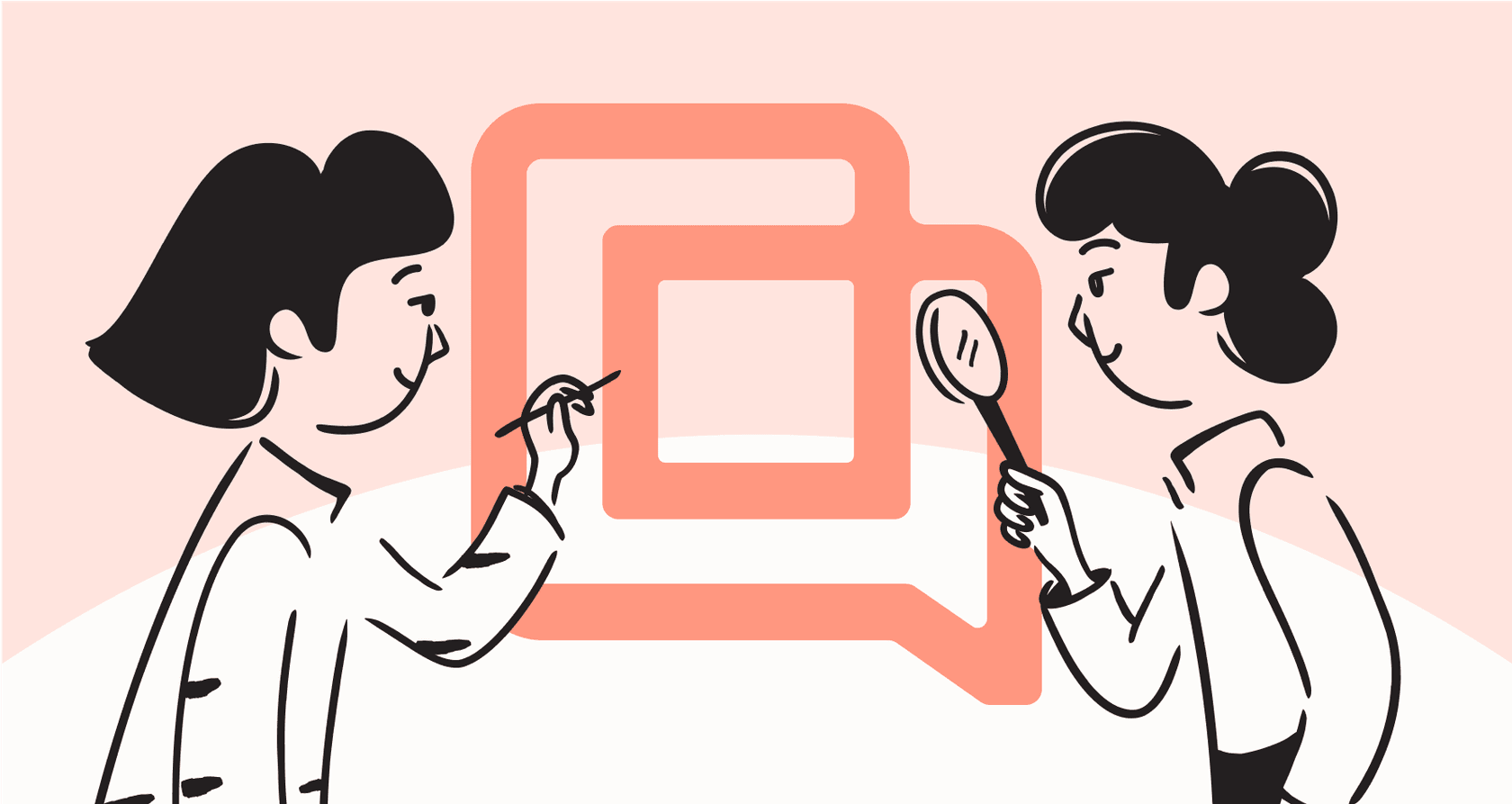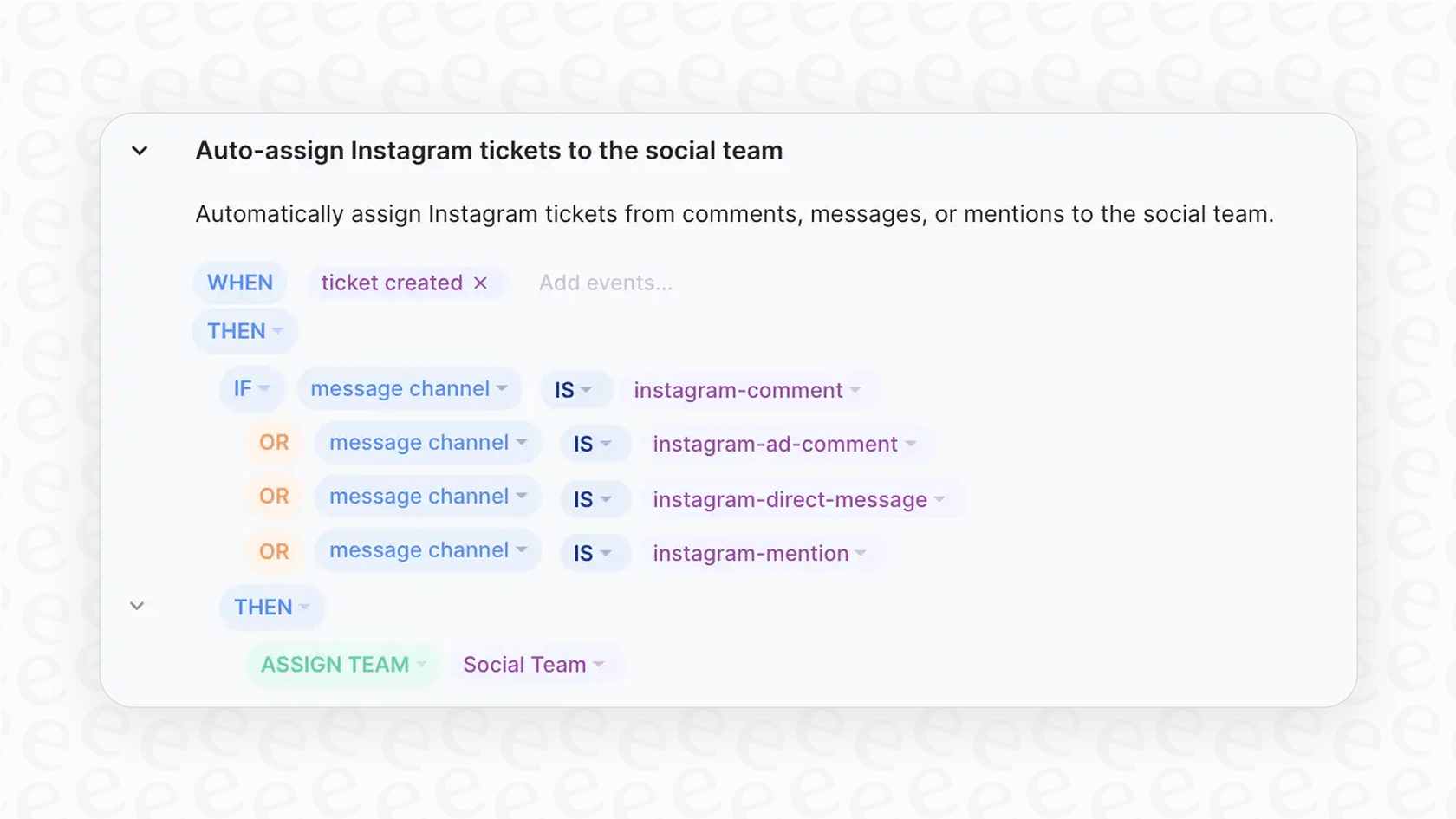A practical guide to Gorgias round robin for support teams

Stevia Putri

Stanley Nicholas
Last edited January 16, 2026
Expert Verified

Let's be honest, manually assigning support tickets is a headache. It's slow, prone to bias, and often leads to "cherry-picking," where agents grab the easy tickets and the tricky ones are left to gather dust. This is why automated systems like round robin were created in the first place: to bring fairness and balance to the workload.
In this post, we’re going to dig into how Gorgias round robin works for both calls and tickets. We'll walk through the advantages of this mature platform, explore how scaling teams can optimize their setup, and look at how adding an intelligent layer can help get the right ticket to the right person, every time.
What is Gorgias round robin?
Round robin is a simple, automated way to hand out conversations to your team one by one, in a loop. Think of it like dealing cards around a table: the idea is to give everyone an equal number of tickets to work on.
In Gorgias, this feature is most clearly defined for phone calls using their Voice add-on. The system looks for the agent who has been waiting the longest for a new conversation and sends the next one their way. This is a reliable alternative to a "broadcast" approach, which sends an alert to all available agents at once.
While the term "round robin" is officially for their call queues, you can configure a similar system for emails and chats using a mix of teams and rules. It’s a great way to create a predictable, orderly line so your team remains productive and balanced.
How to route calls and tickets with Gorgias round robin
Getting a round robin system up and running in Gorgias is a great move to organize your support queue. It establishes a baseline of fairness that can really help build a collaborative team spirit.
Setting up Gorgias round robin for call queues
For phone support, Gorgias gives you direct control over how calls are distributed through its call queue settings.
Here’s a quick look at the settings you’ll be using:
-
Assigning teams: First, you’ll assign one or more of your support teams to a specific call queue. This tells Gorgias which agents are eligible to receive calls.
-
Ringing behavior: This is where the logic is set. Admins can choose "Round-robin" to ring agents one by one or "Broadcast" to ring everyone simultaneously.
-
Ring time: You can decide how long a call should ring for one agent before the system moves on to the next person in line.
This setup ensures incoming calls are offered to the agent who’s been idle the longest, which helps spread the workload evenly across the team.
Using rules and teams for Gorgias round robin
For other channels like email or chat, setting up a round-robin effect is easy with the Gorgias rules engine.
Here’s what that process generally looks like:
-
First, you create a rule that kicks in when a new ticket meets specific conditions, like the channel it came from.
-
The action for that rule will be to "Assign team."
-
Once the ticket is assigned to that team, Gorgias's built-in auto-assignment feature takes over. It then distributes the ticket to an available agent on that team using its round-robin logic.

The pros of a Gorgias round robin system
This approach has some solid advantages for teams looking to streamline their shared inbox.
-
Fairness: It guarantees that every agent gets a similar number of tickets over time. This is a big win for team morale and helps prevent anyone from feeling overloaded.
-
Prevents cherry-picking: By assigning tickets automatically, you sidestep the problem of agents avoiding difficult conversations in the queue.
-
Simplicity and organization: It’s a straightforward system that is easy for everyone to understand, creating a smooth and organized workflow.
Scaling your Gorgias round robin workflow
While round robin is a fantastic starting point, as your team grows and customer issues become more diverse, you may want to refine the system further. Here are some considerations for high-growth teams.
Matching specialized needs
A basic round-robin system is designed for fairness, meaning it treats all incoming tickets and agents with the same logic. As you scale, you might find that certain tickets require specific expertise or language abilities.
For example, a technical API question is a great fit for your senior developers, while a common shipping inquiry is perfect for newer hires. While Gorgias provides a rock-solid foundation for ticket management, many teams add an extra layer of logic to ensure these specialized tickets always find the right expert.
Optimizing for complex workflows
In a standard round-robin rotation, the system assumes that any available agent is ready for a new task. However, an agent might sometimes be deeply involved in a complex investigation that requires their full attention.
In these cases, teams can use Gorgias's flexible settings to adjust availability or use complementary tools to help manage these high-intensity moments, ensuring that agents can focus on quality resolutions without interruption.
Managing varying ticket complexity
Gorgias round robin is excellent at balancing the number of tickets, focusing on who has been idle the longest. As your support operations mature, you might want to account for the fact that some tickets take much longer than others.
One agent might be handling several quick tasks, while another is resolving a single, deep technical issue. Gorgias's ecosystem allows you to build upon the round-robin foundation to ensure that true workload and agent capacity are always kept in balance.
Beyond Gorgias round robin: A smarter approach with AI triage
While basic distribution is a great start, modern AI can complement your Gorgias setup by first understanding each ticket. By analyzing content, an AI can identify exactly what a customer needs - such as a refund or technical support - and pull out key details automatically.
This level of insight works within the Gorgias ecosystem to enable even more effective routing. You can build workflows that send language-specific tickets to the right agents or prioritize VIP customers for your senior team.
This is where a tool like eesel AI comes in. It connects directly to your Gorgias helpdesk, adding a layer of intelligence to your existing setup. It’s a complementary option that enhances the tools your team already knows and loves.
How eesel AI enhances ticket routing
eesel AI works alongside Gorgias to offer intelligent automation.
-
Contextual understanding: eesel AI connects to Gorgias and learns from your history to categorize and route new tickets with high accuracy.
-
Custom actions and control: You can build workflows that go beyond assignment. For instance, an eesel AI agent can tag a ticket as "Urgent" or add helpful internal notes for the agent before they even begin.
-
Full automation potential: For common inquiries, eesel AI can provide instant, accurate answers and resolve tickets, freeing up your team for conversations that truly need a human touch.
Table: Gorgias round robin and eesel AI triage
| Feature | Gorgias round robin | eesel AI Triage & Automation |
|---|---|---|
| Routing logic | Based on the agent who has been idle the longest. | Based on ticket content, intent, and customer data. |
| Agent skill matching | Ensures fair and equal distribution. | Can route to agents based on specific skills or expertise. |
| Automation actions | Assign to a team or agent. | Assign, tag, add notes, or trigger custom actions. |
| Instant resolutions | Excellent for team distribution. | Can resolve common questions automatically. |
| Setup & onboarding | Easy configuration of rules and teams. | Go live in minutes. Learns from your Gorgias history instantly. |
| Testing | Reliable live production tools. | Simulation mode lets you test on past tickets risk-free. |
Understanding Gorgias pricing in 2026
To get the most out of the platform, it’s helpful to understand how Gorgias structures its pricing. The platform offers tiered plans to match different team sizes and ticket volumes, ensuring you only pay for what you need.
-
Helpdesk plans: These plans are designed to scale with your volume.
- Starter: $10/mo for 50 tickets.
- Basic: $50/mo for 300 tickets.
- Pro: $300/mo for 2,000 tickets.
- Advanced: $750/mo for 5,000 tickets.
- Enterprise: Custom volume and pricing.
-
AI agent add-on: Gorgias also offers its own AI features as an add-on. This allows you to pay per automated interaction, which is a great way to handle seasonal spikes or growing automation needs without a massive upfront investment.
From Gorgias round robin to intelligent automation
Gorgias round robin is an excellent foundation for any support team looking to bring order and fairness to their queue. It’s a powerful, mature tool for organizing your workload and keeping your team aligned.
As your operations grow, the next step is often to enhance this foundation with intelligent automation. This ensures that tickets are not only distributed fairly but are also understood and sent to the best possible place for a fast resolution.
For teams ready to optimize their routing further, eesel AI offers a self-serve platform that works seamlessly with Gorgias. You can even use its simulation mode to see how many of your tickets could be automated, helping you make the most of your Gorgias ecosystem in 2026.
Frequently asked questions
For calls, Gorgias round robin assigns incoming calls to the agent who has been idle the longest. For other channels like email or chat, you can simulate a Gorgias round robin effect by using rules to assign tickets to teams, and Gorgias's auto-assignment logic then distributes them fairly among available team members.
The primary benefits of Gorgias round robin include ensuring fairness in ticket distribution, preventing agents from "cherry-picking" easier tickets, and offering a simple, easy-to-understand automated workflow. This helps balance agent workload and improves team morale.
When using a basic Gorgias round robin system, growing teams should consider how to handle complex issues that may require specific skills or varying workloads. While the system is excellent for fairness, very large teams often add AI-driven logic to account for specific agent expertise as customer needs evolve.
The core Gorgias round robin system is designed to distribute tickets based on idle time to ensure fairness. To add skill-based or language-specific routing, you can easily integrate a more advanced AI triage system that works alongside Gorgias.
While Gorgias round robin distributes based on idle time, an AI triage system works as a complementary layer to route tickets using contextual understanding of ticket content, intent, and customer data. It can help match tickets to agents based on specific skills or language, and can even fully automate resolutions for common questions.
Setting up Gorgias round robin for email and chat is an intuitive process. You simply create rules that assign new tickets to appropriate teams, after which Gorgias's auto-assignment will distribute them using its round-robin logic among available team members.
Your team might consider enhancing your Gorgias round robin approach when your workflow grows more complex. Adding AI-powered triage can help further optimize efficiency by matching specific ticket types with agent expertise, allowing your team to handle specialized issues more effectively.
Share this post

Article by
Stevia Putri
Stevia Putri is a marketing generalist at eesel AI, where she helps turn powerful AI tools into stories that resonate. She’s driven by curiosity, clarity, and the human side of technology.




